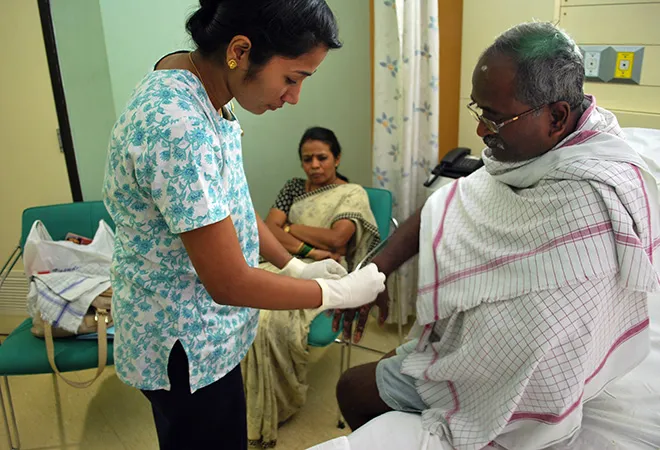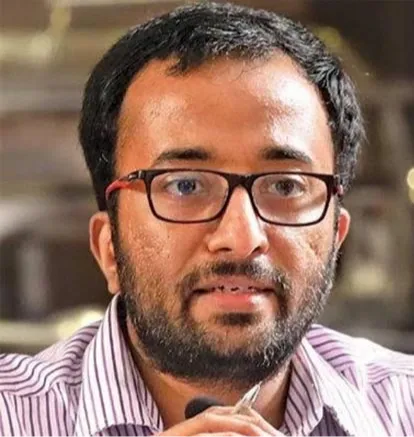Better data is needed to enhance state intervention in health and nutrition and harness the strengths of the well-entrenched private sector to achieve public health goals. To meet the global Sustainable Development Goals (SDGs) over the next 15 years, it is important to measure progress closely and ensure mid-course corrections when needed.
Availability and use of regular, good quality health data is increasingly becoming a policy imperative. The Delhi Commitment on SDGs for Health of May 2016 called for greater investments in health data collection, analysis and research. Multi-sectoral convergence and integrated solutions keeping in mind regional specificities in the health sector and a performance-based categorisation of districts similar to what Karnataka has tried will be immensely useful.
Huge unused bed-strength in the private sector and long waiting lines in the public sector co-exist in India in secondary and tertiary health care and a robust information infrastructure is a necessary condition for any solution that reconciles issues of financial and physical access using government’s bargaining power.
Real-time data flow will also have a major role to play in getting rid of the thick wall of suspicion that exists between the private and the public health sectors in India, given the inevitability of private sector engagement as 70% of population depends on it for care. Data flow in itself can be a confidence building measure. High quality data will be essential to ensure that our health programmes reach the last mile.
Real-time data flow will have a major role to play in getting rid of the thick wall of suspicion that exists between the private and the public health sectors in India, given the inevitability of private sector engagement as 70% of population depends on it for care.
India has covered some ground in terms of streamlining its public sector health information infrastructure. Currently, 676 out of the 700 Indian districts regularly report public facility level data to the national Health Management Information System (HMIS). 97% of Sub Centres, 94% of Primary Health Centres, and 85% of Community Health Centres submit regular health data. The quality of the HMIS data has improved over time, and some important information on improvements in equitable distribution of health infrastructure and coverage is available now.
High priority districts identified using HMIS and other datasets within Empowered Action Group (EAG) states receive per capita 1.3 times more money than other districts, even though quality and reliability of HMIS data remains a problem despite improvements. On some parameters, the difference between HMIS estimate and a third-party survey estimate is reportedly as wide as 50%. Under-utilisation of other existing data sources like National Nutrition Monitoring Bureau (NNMB) surveys remains a concern.
India has not fully tapped into the potential that Information Technology offers to integrate the health information systems in the country. The National Health Policy 2017 has suggested that a national digital health authority will be responsible for developing common standards, notifying them, and ensuring that there is buy-in from stakeholders, including for the private sector that remains mostly outside the purview of the national health information system. To overcome this binding constraint, a National Health Resource Repository is currently being rolled out.
Most of health policy debate in India typically happens post-facto: not during or before decision-making. Given the complexity of the systems and the multiple stakeholders involved, there is a need for making the datasets behind policy decisions transparent for democratic decision-making. The digital architecture needs to be made more inclusive and universally adoptable so that even if different stakeholders build components individually, these are built consistently and uniformly across the overall system.
Given the complexity of the systems and the multiple stakeholders involved, there is a need for making the datasets behind policy decisions transparent for democratic decision-making.
The new health information infrastructure will also have to find ways of overcoming the inter-sectoral, inter-ministerial and inter-organisational incoherence. India has two different targets for the same year for MMR — NITI Aayog’s three-year action agenda seeks to reduce MMR to 120 per one lakh live births by 2020, the National Health Policy 2017 seeks to decrease the MMR to 100 per 1 lakh live births by 2020.
While administrative data on morbidity exists in hospitals, these are never compiled or analysed systematically. Improved levels of standardisation at the point of data collection will facilitate data use and policy discussions informed by relevant numbers.
India, like China, has a real economic reason to invest in universal health coverage, apart from equity. To make that investment for the future meaningful, high quality data is inevitable. India is planning to undertake an ambitious step towards UHC through the National Health Protection Scheme (NHPS), which will reportedly cover 70% of the Indian population. Ensuring a seamless transition from the existing Rashtriya Swasthya Bima Yojana (RSBY) to the proposed NHPS will require insights from the analysis of RSBY scheme data as well as survey data on its impact. It is time for India to drop the much-discussed apprehension to programme evaluations and to liberate data being collected under schemes and by institutions to facilitate independent evaluations.
This commentary originally appeared in Hindustan Times.
The views expressed above belong to the author(s). ORF research and analyses now available on Telegram! Click here to access our curated content — blogs, longforms and interviews.




 PREV
PREV


